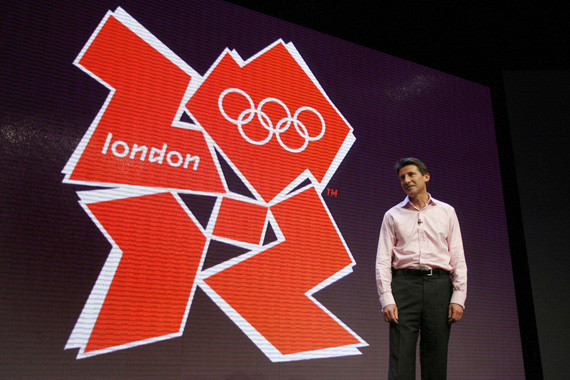
Not only is the Olympic Committee serious about enforcing regulations on sporting, such as the
disqualification of 8 badminton players for purposefully botching matches this weekend, but they are also becoming known as being strict and
"militant" in enforcing their branding guidelines.
Commentator
Johnathan Agnew's umbrella was confiscated for having a "golfing logo" that was not an official sponsor of the London Olympics. In a similar incident, a cameraman for the Olympics reported that the "branding police" forced him to put black tape over the logos for Sony, Canon, and other electronics companies that appeared on his equipment.
If you haven't seen the branding for the
2012 London Olympics you really should. The really important question though, is why the Olympics would guard their branding so "militantly"? The question really gets at the heart of
what branding is and
why it is so important.
We work with a lot of small Chicago businesses, which is a really rewarding thing to be a part of. One of the best pieces of advice we can give to a business starting up is to establish a strong branding identity. What many small businesses don't understand is that
just because they have a logo does not mean that they have a clear brand. We try to emphasize that
1) strong branding can help consumers have a stronger connection to a company and
2) it helps to establish consistency across all platforms including social media, print material, product packaging and more.

At
AlphaGraphics Chicago North we believe that branding is not something that is worth sacrificing. So here are three ways you can evaluate whether your branding is consistent and engaging.
1. Do you have a brand?
As we've said before, branding is more than just a logo. This can be one of the hardest misconceptions about branding to get past. Branding involves every type of communication that represents your company. Does your company have specific ways of referring to itself? Does your company have a set color scheme and typeface for text in print material? Some of these things are qualitative, but others can simply be answered with a small test. Take two examples of your printed material. If you removed the logo, could you tell that each piece came from the same company? Take some time to evaluate how strong your company's brand identity is.
 2. Are you distinct from your competitors?
2. Are you distinct from your competitors?
When a small business is started, it is tempting to borrow ideas and terminology from competitors that have already done the hard work for you. Why not borrow their phrasing or base your logo off of a similar concept? It seems like a fair shortcut, but could prove to be destructive for your business. What sets your company apart? Take the time to establish yourself as being different. It will pay off in the long run.
3. Is your branding outdated?
Many businesses that have been around for some time and have a comfortable base of customers fear that if they changed their brand, they might lose the loyalty to the customers they have worked so hard to get. But if you start to see your business hitting a plateau, one of the ways to gain a larger customer base is to re-brand. Odds are, your loyal customers will not leave you simply because you re-brand. A re-brand can help your current customer base become aware that you are an innovative company that desires to keep its place in a changing market. It also helps your company become appealing to a new customer base.
Unfortunately, there are no hard and fast rules about branding. The important step is to begin to think about your brand as a whole and consider the ways that developing a stronger brand can help your business.
If this is something you and your business are interested in considering, give AlphaGraphics Chicago North a call to discuss how we can partner with you in establishing a strong branding identity. Our designers and marketing specialists have worked with hundreds of companies to do just that!